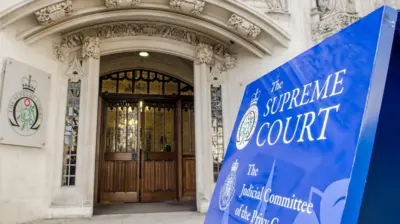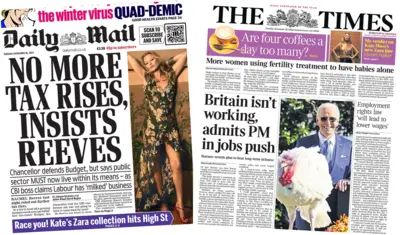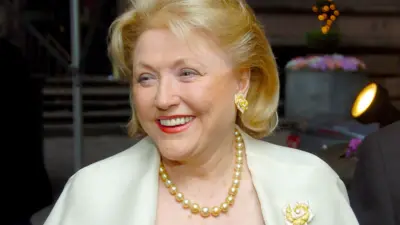We've updated our Privacy and Cookies Policy
We've made some important changes to our Privacy and Cookies Policy and we want you to know what this means for you and your data.
German poll upsets leave Angela Merkel looking wobbly
- Author, Stephen Evans
- Role, ┤¾¤¾┤½├¢ News, Berlin
The German political landscape has suddenly changed. For the past year, the terrain has certainly been rough for Chancellor Angela Merkel's government but she has bumped her way over the obstacles - a minister resigns here (over plagiarism); a policy gets reversed there (over nuclear power) - but still the government kept chugging along.
Now, though, there is much debate in Germany about whether the governing coalition might fall apart. It probably won't happen tomorrow but it is possible to see how the end might come. What once seemed solid now has a bit of wobble in it.
Chancellor Merkel's difficulty is not so much within her own Christian Democratic Union (CDU) but in the company she and it keep in government.
The junior partners in the coalition, the Free Democratic Party (FDP), have been haemorrhaging support in a string of elections. The question is whether they will now adopt a more populist line on euro bailouts to try to reverse the decline.
A tougher FDP rhetoric had already started to appear before the local elections in Berlin on Sunday.
The FDP's new leader - and Chancellor Merkel's deputy in the government - Philipp Roesler rocked the boat by suggesting that there should be no taboos on the debate over eurozone economies in difficulties.
The forbidden subject he specifically wanted discussed was "an orderly bankruptcy of Greece".
But this was precisely the taboo that Chancellor Merkel didn't want discussed. Her position was and is that there is already a policy, agreed on at the end of July by leaders of the governments in the eurozone, and this policy should be driven through.
Debate means uncertainty, she might have said, and uncertainty worsens the situation.
But faced with being contradicted from within her own government, she and people close to her then spent the next 24 hours emphasising that letting Greece go bankrupt, with all the consequences for the European banking system which that might entail, was not on the agenda.
Since Mr Roesler's discordant suggestion, things have got worse for the FDP.
In the Berlin elections the party didn't get even 2% of the vote, let alone the 5% the law demands before it can be granted any representation at all in the Berlin legislature.
This comes after the elections earlier this month in Mecklenburg-Western Pomerania in north-east Germany when the FDP lost all seven of its seats in the state parliament.
It had a similarly miserable showing in elections in Saxony-Anhalt, Rhineland-Palatinate and Baden-Wurttemberg.
Falling electoral support concentrates minds and maybe sharpens rhetoric. As Gregor Gysi, one of the leaders of the left put it: the FDP is drowning at the moment, and you always have to be very careful about the unreasonable decisions which a drowning person makes.
It is not just the FDP that is troublesome to Mrs Merkel.
The other coalition partner, the CSU of Bavaria, is also an increasingly difficult companion.
It, too, is taking a stronger line against bailouts and euro-bonds and anything else that smacks of German taxpayers' money heading south.
Again, there may be electoral factors, with the CSU trying to keep its majority in the Bavarian state parliament in 2013.
All this trouble and strife has led some in Chancellor Merkel's own party to talk of a grand coalition with the Social Democrats (SPD).
After all, runs the argument, it worked between 2005 and 2009 when the CDU and SPD together steered the country through the financial crisis, Chancellor Merkel at the top and the SPD's Peer Steinbrueck as finance minister.
It should be said that an SPD/CDU coalition isn't probable. Why would the SPD want to help a struggling government it hopes to replace entirely?
But imagine that the crisis over the euro gets worse and the in-fighting in the government gets louder.
Alternatives to the FDP as coalition partners might look increasingly attractive. A centre-left/centre-right coalition could then be presented as a grand alliance to further a bigger cause, namely keeping the euro in existence.
Dr Gero Neugebauer, a political scientist with the Free University in Berlin, thinks it remains unlikely.
It is more probable that the current government will, as he puts it, "muddle along". He thinks the FDP know that rocking the boat too much might tip them out into electoral oblivion.
He thinks that Chancellor Merkel learned much from Chancellor Kohl which was to ignore barking dogs - just keep on walking and you'll get past them, he feels is the philosophy.
Maybe. But what has definitely changed is that now the dogs are barking much more loudly. They may start to snarl and nip.
Possibilities and permutations are being discussed by people of power and influence. What seemed stable isn't exactly toppling - but it isn't rock solid either.
Top Stories
More to explore
Most read
Content is not available








